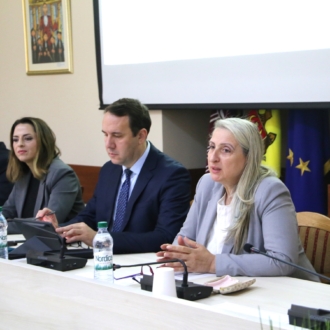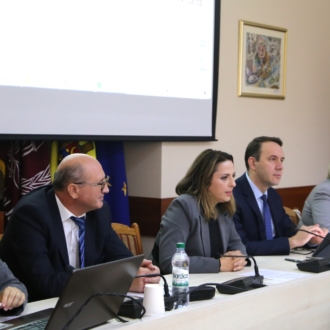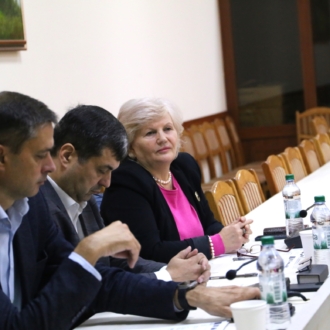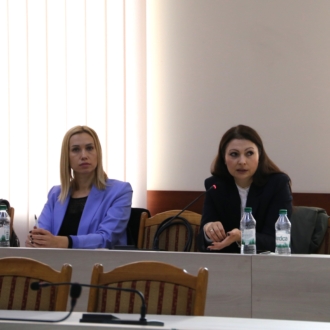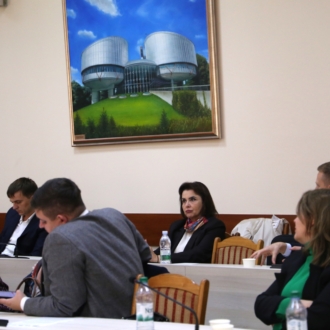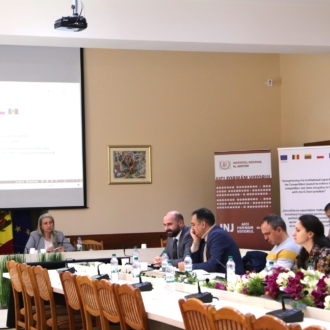On 10 October of the current year, the National Institute of Justice, in cooperation with the Twinning Project, organized a training session dedicated to the application of Articles 101 and 102 of the Treaty on the Functioning of the European Union (TFEU), which regulate anti-competitive agreements and abuse of dominant position.
The event brought together judges, prosecutors, and officials of the Competition Council, providing a platform for inter-institutional training on the application of European competition law.
The training session included presentations delivered by experts from Romania, offering a comprehensive perspective on how competition rules are applied both by the national authority and by the courts. Cătălina Pantea, Deputy Director of the Legal Department of the Romanian Competition Council, presented cases from the institution’s experience in applying Articles 101 and 102 TFEU, while Judge Ionel Florea, from the High Court of Cassation and Justice of Romania, provided the perspective of the Supreme Court on their interpretation and application.
The presentations also addressed both the general principles developed in the jurisprudence of the European Union and relevant aspects from the national practice of Romanian courts. In addition to the theoretical aspects, concrete cases were analyzed, including those concerning notaries, financial leasing companies, transport operators from Ilfov, and the Transgaz company. These examples provided participants with a clear and practical picture of how European rules are reflected in national decisions. Moreover, the analysis of decisions of the competition authority and court rulings significantly contributed to a deeper understanding of how European legal principles are applied in the national context, taking also into account the provision of the Competition Law according to which it shall be applied with due consideration to the relevant case law of the Court of Justice of the European Union.
Such training sessions not only raise awareness of the role of judges in the field of competition but also encourage their involvement in developing a genuine legal culture in this area, which is essential for the efficient functioning of the market and for maintaining an undistorted competitive environment.
The event was organized within the framework of the Twinning Project “Strengthening the capacity of the Competition Council of the Republic of Moldova in the enforcement of competition and State aid legislation,” implemented by Romania, Lithuania, and Poland over a period of 27 months.


